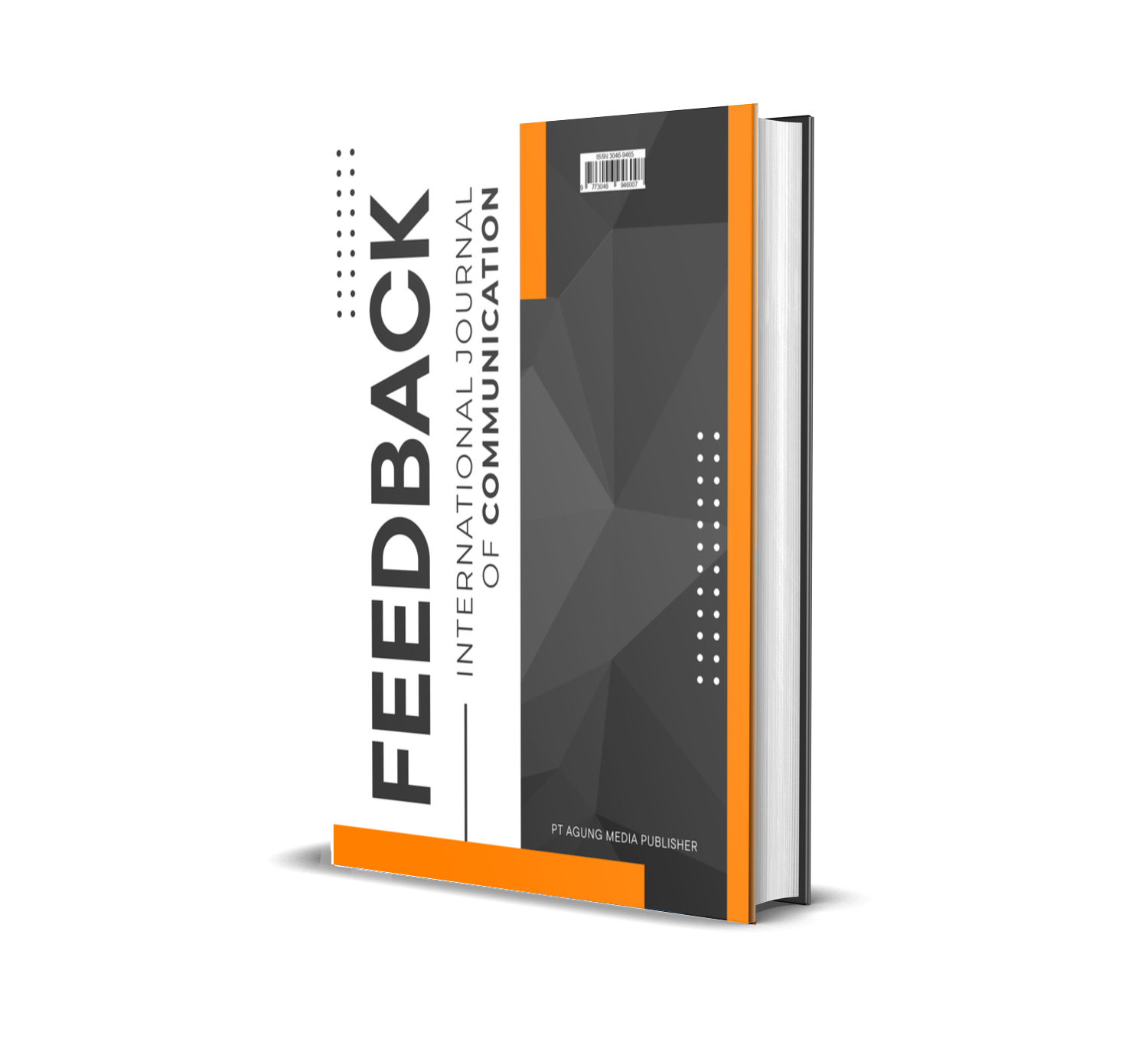Da'wah Communication Strategies in Dealing with Online Gambling among Teenagers
Main Article Content
Abstract
Online gambling has become a serious problem that threatens the younger generation, especially teenagers. "Online gambling has serious psychological impacts, such as stress, depression, and social isolation, and has the potential to trigger criminal acts. Online gambling addiction can damage many aspects of a teen's life, including mental health, social relationships, academic achievement, and financial stability. This research aims to formulate an effective da'wah communication strategy to overcome these problems. This qualitative research is carried out using a case study approach. The results of the study show that a combination of personal, community, and social media approaches is an effective da'wah communication strategy in dealing with online gambling among teenagers. An individual approach through counseling and mentoring can provide emotional and spiritual support to adolescents who are involved in online gambling. The community approach consists of working with religious leaders, community leaders, and educational institutions to create an environment that supports a healthy lifestyle and is free from gambling. Meanwhile, the social media approach can be used to spread positive messages and anti-gambling campaigns more widely. In addition, this research also enriches the understanding of the importance of integration between traditional and modern communication in the context of da'wah.
Keywords: Communication Strategies, Da'wah Communication, Online Gambling, Teenagers
Downloads
Article Details
Section

This work is licensed under a Creative Commons Attribution-ShareAlike 4.0 International License.
You are free to:
- Share — copy and redistribute the material in any medium or format for any purpose, even commercially.
- Adapt — remix, transform, and build upon the material for any purpose, even commercially.
- The licensor cannot revoke these freedoms as long as you follow the license terms.
Under the following terms:
- Attribution — You must give appropriate credit , provide a link to the license, and indicate if changes were made . You may do so in any reasonable manner, but not in any way that suggests the licensor endorses you or your use.
- ShareAlike — If you remix, transform, or build upon the material, you must distribute your contributions under the same license as the original.
- No additional restrictions — You may not apply legal terms or technological measures that legally restrict others from doing anything the license permits.
Notices:
You do not have to comply with the license for elements of the material in the public domain or where your use is permitted by an applicable exception or limitation .
No warranties are given. The license may not give you all of the permissions necessary for your intended use. For example, other rights such as publicity, privacy, or moral rights may limit how you use the material.
How to Cite
References
Education, and Business, 2(1), pp. 75–78. doi: 10.57235/jleb.v2i1.1535.
Alvin, S. (2022) 'The Implementation of Integrated Marketing Communication (IMC) on the Bandar55 Online Gambling Site', Journal of Communication, 16(2), pp. 148–160. doi: 10.21107/ilkom.v16i2.14389.
Amaliyah, A. and Rahmat, A. (2021) 'Developing Students' Self-Potential Through the Educational Process', Attadib: Journal of Elementary Education, 5(1), pp. 28–45.
Aryadi, D. W. et al. (2024) ‘PROSECUTION ON ONLINE GAMBLING BASED ON ENFORCEMENT OF CRIMINAL LAW IN INDONESIA’, International Journal of Service Science, Management, Engineering, and Technology, 5(2), pp. 1–6.
Asriadi (2020) 'Analysis of Online Gambling Addiction (Case Study on Students of SMAK AN NAS Mandai Maros, Maros Regency)', Journal of Educational Psychology and Guidance, 4(2), pp. 1–30.
Creswell, J. D. and Lindsay, E. K. (2014) ‘How Does Mindfulness Training Affect Health? A Mindfulness Stress Buffering Account’, Current Directions in Psychological Science, 23(6), pp. 401–407. doi: 10.1177/0963721414547415.
Etikan, I. (2016) ‘Comparison of Convenience Sampling and Purposive Sampling’, American Journal of Theoretical and Applied Statistics, 5(1), p. 1. doi: 10.11648/j.ajtas.20160501.11.
Haqq, K. D. U. (2022) 'Return of Victims' Losses Confiscated by the State in the Case of Online Gambling Fraud by Binary Options', Jurnal Pro Hukum, 11(3), pp. 369–379.
Hidayat Ariep, Sa'diyah Maemunah and Lisnawati Santi (2020) 'Active and Creative Learning Methods at Madrasah Diniyah Takmiliyah in Bogor City', Islamic Education: Journal of Islamic Education, 9(01), pp. 71–86.
Juditha, C. (2019) 'Information Literacy Against Hoaxes in the Health Sector in the Online Community', Journal of Communication Sciences, 16(1), p. 77. doi: 10.24002/jik.v16i1.1857.
Manullang, N. et al. (2024) 'Recovery Strategies for Adolescents Addicted to Online Gambling', JIMI: Multidisciplinary Scientific Journal, 1(3), pp. 34–40.
Montiel, I. et al. (2021) ‘Problematic online gambling among adolescents: A systematic review about prevalence and related measurement issues’, Journal of Behavioral Addictions, 10(3), pp. 566–585. doi: 10.1556/2006.2021.00055.
Ritonga, M. (2019) 'Da'wah Communication in the Millennial Era', Journal of Islamic Communication, 3(1), pp. 60–77.
Safi'i, I. (2019) 'Communication Strategies of Village Kiai in Efforts to Empower Adolescents with Lottery Fever', Al-Mada: Journal of Religion, Social, and Culture, 2(2), pp. 47–63. doi: 10.31538/almada.v2i2.336.
Saragih, Y. M. et al. (2023) ‘Juridical Review of Online Gambling Crime in North Sumatera’, Multidiciplinary Output Research For Actual and International Issues |MORFAI JOURNAL, 3(1), pp. 426–435. Available at: http://radjapublika.com/index.php/MORFAI/article/view/1040.
Sitoh Anang, M., Maskur, A. and Abu Safar, K. (2024) 'Da'wah Strategy to Eradicate Online Gambling in Indonesia', Al-Hikmah Media Da'wah, Communication, Social and Culture, 15(1), pp. 1–14. doi: 10.32505/hikmah.v15i1.8409.
Suharto, S., Abu, A. and Hamsah, M. (2022) ‘The Role of Al-khairaat Media as a Channel Communication of Da’wah in Palu City’, Golden Ratio of Social Science and Education, 2(1), pp. 39–46. doi: 10.52970/grsse.v2i1.129.
Umilawati and Jasman (2022) 'THE ROLE OF RELIGIOUS LEADERS IN TACKLING GAMBLING AMONG THE PEOPLE OF TANJUNG PASIR VILLAGE, KUALA BETARA DISTRICT, TANJUNG JABUNG BARAT REGENCY', At-Tadabbur: Journal of Socio-Religious Research, 12(2), pp. 17–35. Available at: http://www.ejournal.an-nadwah.ac.id/index.php/Attadabbur/article/view/481%0Ahttp://www.ejournal.an-nadwah.ac.id/index.php/Attadabbur/article/download/481/392.
Ummah, A. H. (2020) 'Digital Da'wah and the Millennial Generation', Tasâmuh, 18(01), pp. 54–78.
Yulia, I. (2018) 'OPTIMIZATION OF THE USE OF SOCIAL MEDIA IN SOCIAL MARKETING AND COMMUNICATION OF BEHAVIOR CHANGE (AN APPROACH TO A LITERATURE REVIEW STUDY)', HEARTY, 6(2). doi: 10.32832/hearty.v6i2.1276.


